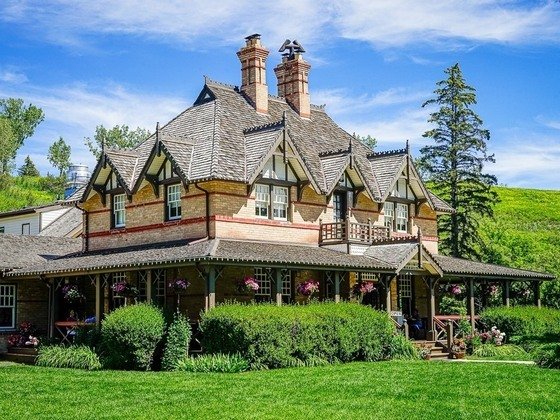If you're in the market for a home bursting with character, a historic house might be calling your name. These homes transport you to a time when skilled craftsmen poured their hearts into every detail, creating enduring residences that stand as a testament to the past.
You may have already found yourself perusing listings for historic homes in your area, eager to own a piece of history. However, beneath the charm and nostalgia, there may be lurking challenges you should be aware of before making an offer on a historic house. Failing to do your due diligence can lead to unexpected expenses and countless hours of renovation work.
With that in mind, here are seven crucial considerations when contemplating the purchase of a historic home:
1. Expect Elevated Maintenance: Historic homes often demand more care and attention than their modern counterparts. The clue is in the name; these houses have stood the test of time, which can bring a host of issues. While some may have been meticulously maintained, others could have suffered neglect for decades. Prepare for regular maintenance, making it a great DIY project if you're inclined. However, if you'd rather not spend weekends addressing dampness or outdated systems, a historic home might not be your best bet.
2. Renovation Challenges: If you're eyeing a historic home as a fixer-upper, be aware that you might face hurdles. Many of these homes are located in historic districts governed by local laws that can slow down your renovation plans. You may need approvals from the local historical society, which can be a lengthy process. While interior renovations are usually less restricted, external changes may require extra scrutiny.
3. Unique Renovation Considerations: Historical homes were constructed differently from modern ones, designed to allow for breathability. Using modern materials can disrupt this balance, leading to issues like dampness and rot. Consulting with a contractor experienced in historic buildings is crucial for selecting appropriate materials.
4. Don't Skip the Home Inspection: Given the potential complexities, a thorough home inspection is vital. Look for signs of water damage, faulty wiring, dampness, drafts, and plumbing issues. Hiring an inspector experienced with historic homes is advisable, as they'll know what to look for and can provide insight into the home's unique features.
5. Inconsistent Design: Many historic homes have evolved over centuries, resulting in a mix of modern and dated elements. Achieving a cohesive design may require significant effort or compromise.
6. Potentially Higher Costs: Contrary to assumptions, historic homes can be more expensive than modern ones. Well-maintained historic homes often come with a premium price tag, while fixer-uppers may require costly specialist renovations and materials. Additionally, specialized insurance is usually necessary.
7. Financial Incentives: On a positive note, owning a historic home can come with financial benefits. Some governments offer low-interest loans and tax incentives to encourage preservation and restoration of historic properties.
In summary, historic homes offer unique charm but require careful consideration and preparation. Your decision should align with your willingness to invest time, money, and effort into preserving a piece of history while navigating potential challenges.

